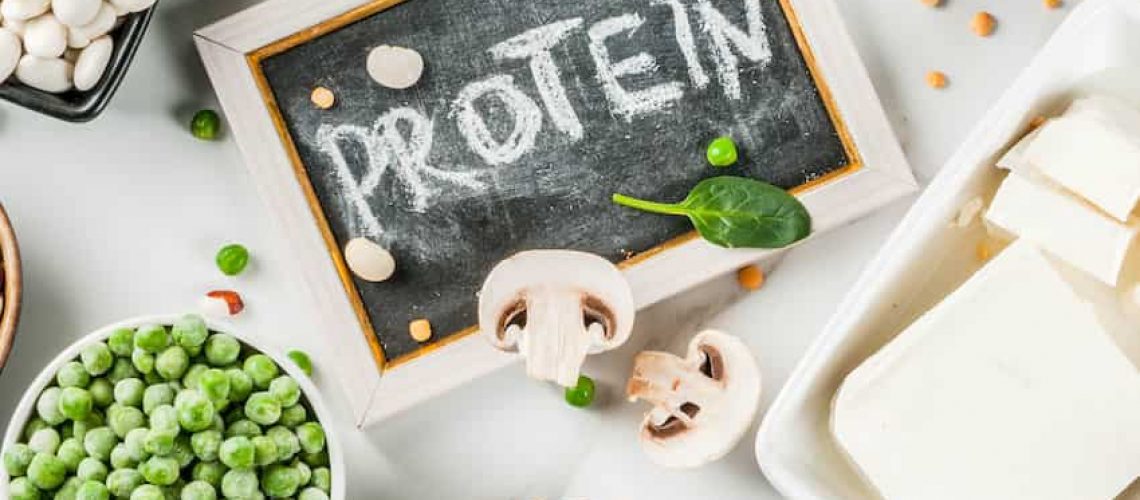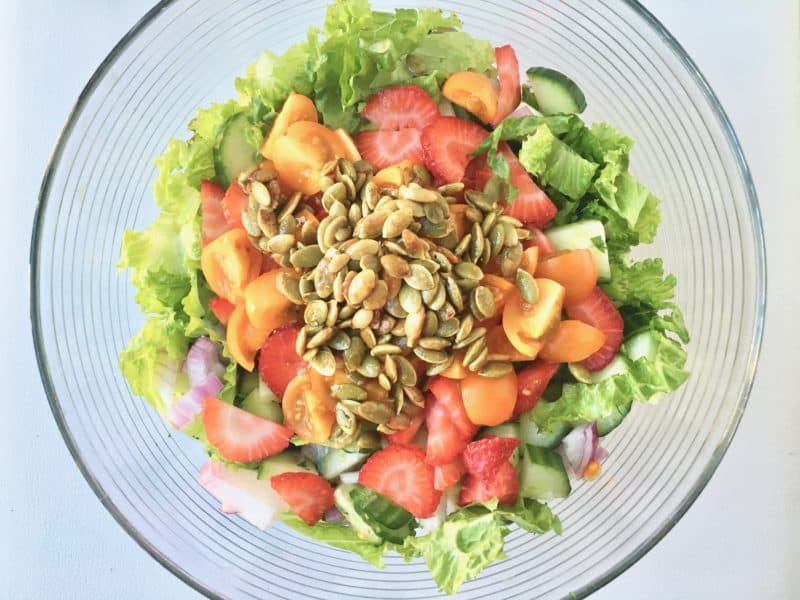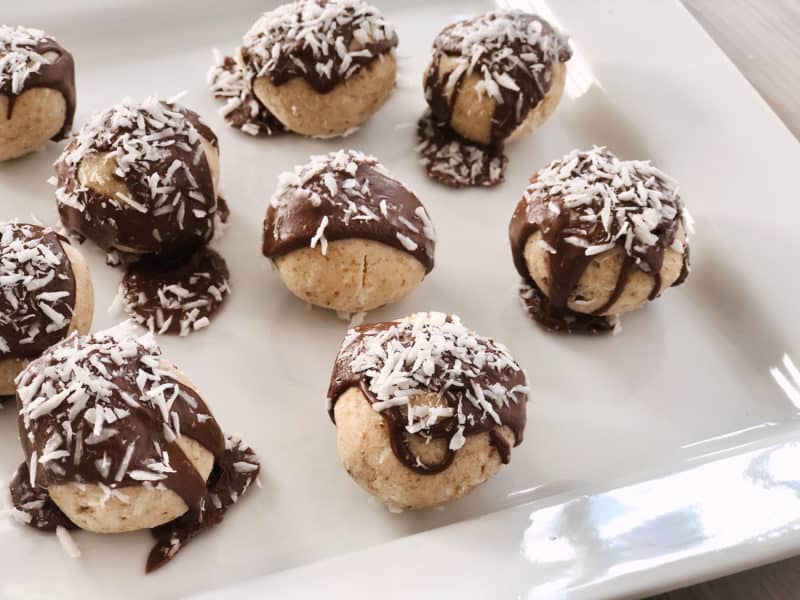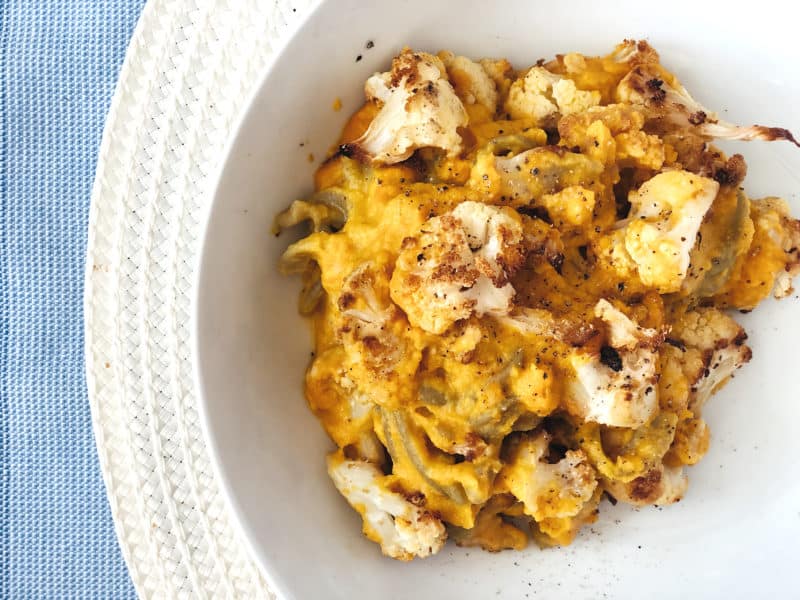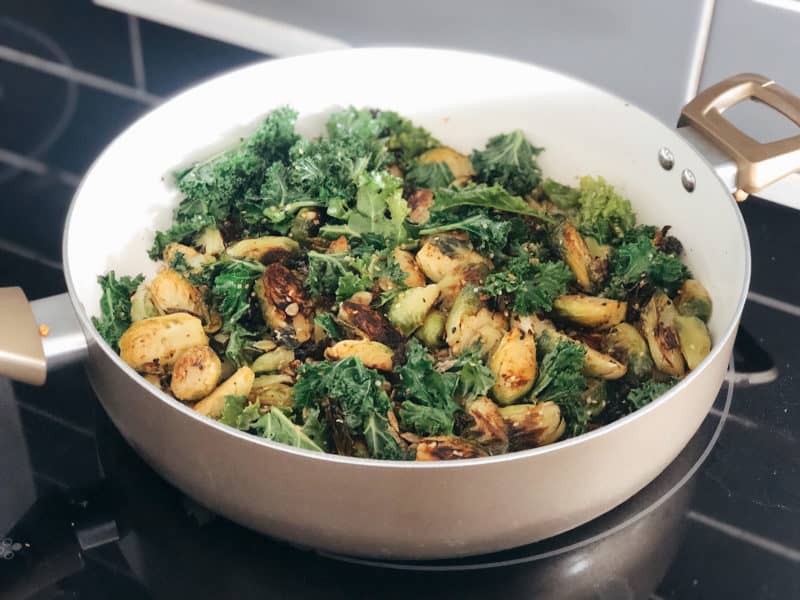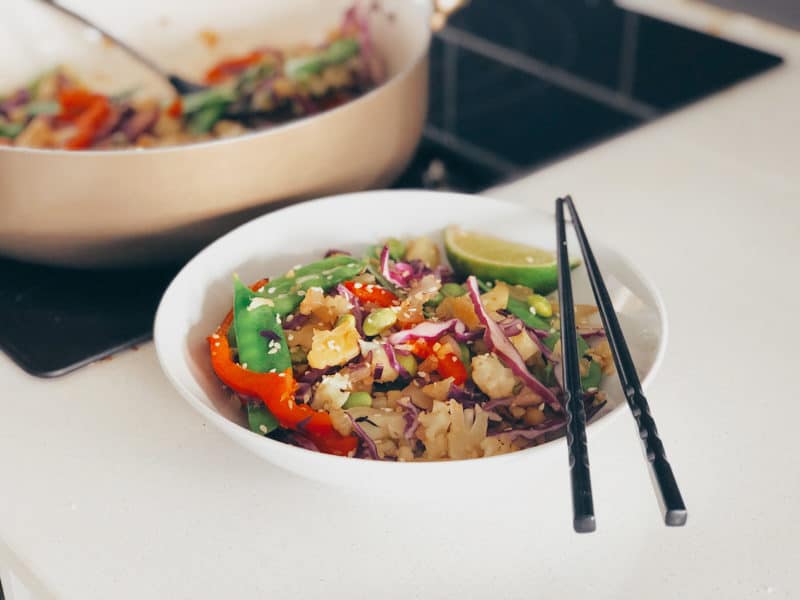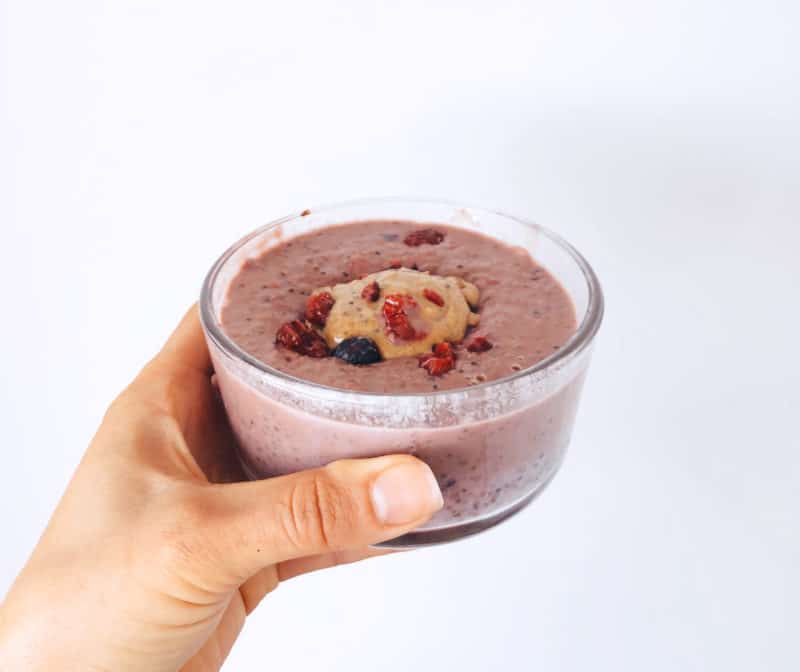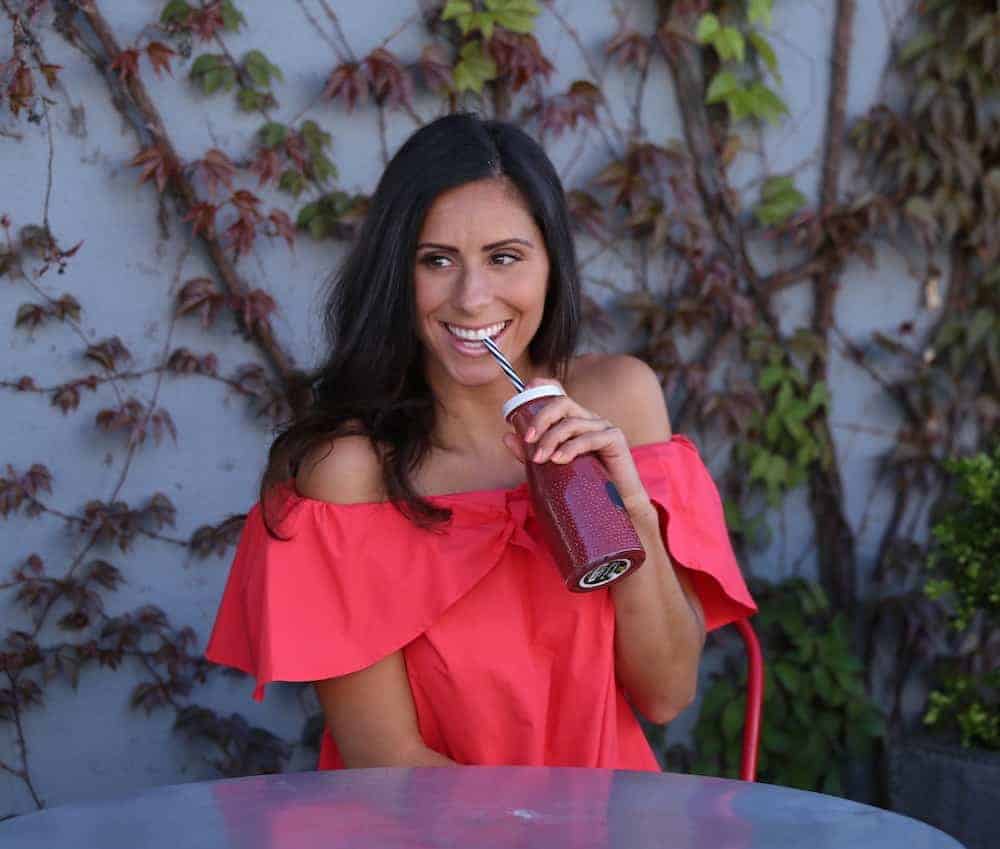You’re probably sick and tired of seeing/hearing anyone in the fitness industry ramble on about protein and muscle growth. But muscle growth is such a small role that protein plays in our bodies.
Before I continue, I have to disclaim for anyone pondering this thought…
Listen up peeps.
No, protein will not make you bulky. Overeating, under-exercising, stress and artificial hormones and supplements will. Read it until you’re chanting it like your daily mantra.
I digress…
Our bodies need protein to be able to perform some of our most important functions. Making enzymes, hormones, and chemicals essential for our body and brain to operate. Our muscles, ligaments, organs, nails, and hair are made up of protein. Protein also aids in triggering the brain to produce norepinephrine and dopamine, chemicals that keep us alert, energized, and feeling good.
So you can see why protein is essential to our diet. But the real question is how much protein to eat?
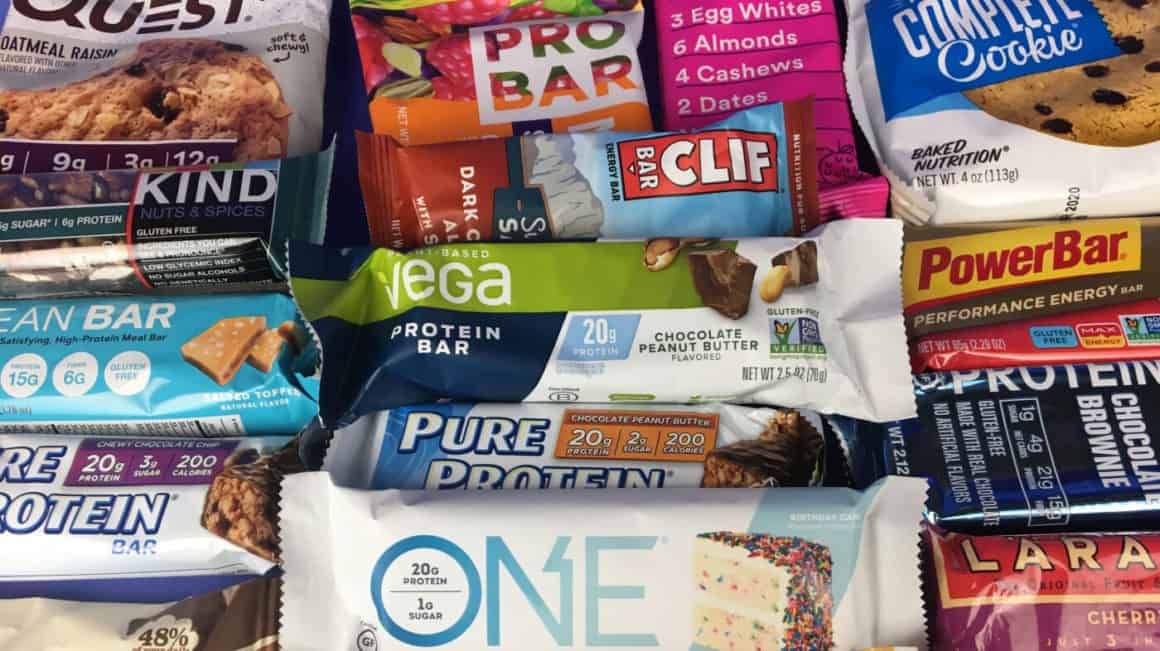
The supplement industry has taken the RDI (recommended daily intake) of protein to new heights, brainwashing the masses into thinking they need more and more of it. Just walk into any supplement store these days. Shelves littered with protein bars and powders and now they’re taking it even further with protein popcorn, protein chips, cookies, gummies, and more.
Why though?
Why make everyone believe they need large amounts of protein especially from supplements and food products?
MONEY BABY!
Most people who include meat in their diet regularly are already reaching or exceeding the daily recommended intake of protein and don’t necessarily have to outsource. For those like myself, who eat a plant-based diet, having a scoop of vegan protein can help bring our protein numbers up.
Which brings us to…
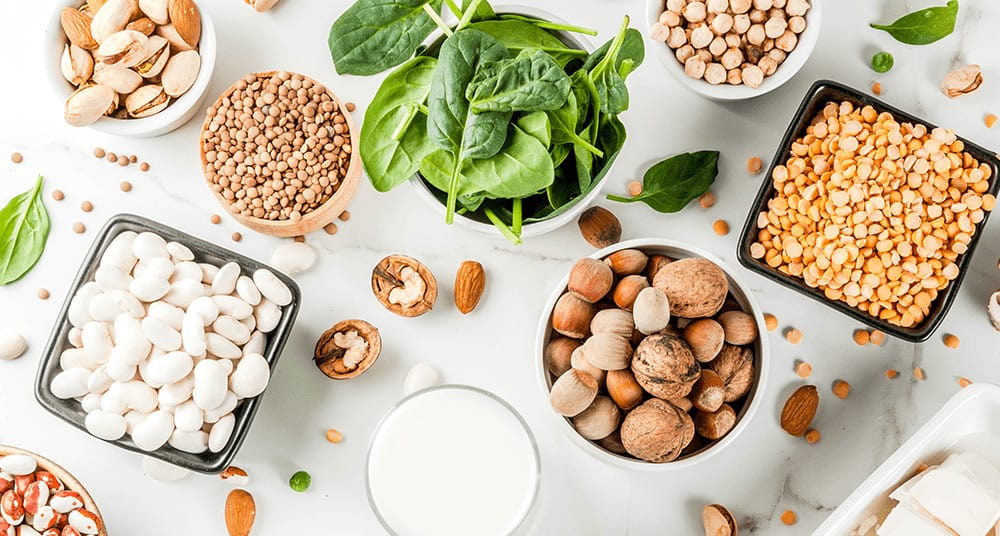
HOW MUCH PROTEIN TO EAT?
Your daily protein intake depends on a few factors. Age, activity level, and health. Just about any website you look into on this topic will give you a different answer but here are some numbers I found on average to give you an idea.
*Information gathered from studies done through Harvard Health, US National Library of Medicine and The American College of Sports Medicine, the Academy of Nutrition and Dietetics, and the Dietitians of Canada*
The minimum amount of protein for the adult individual is 0.8 grams of protein per kilogram of body weight or 0.36 grams per pound. As mentioned above, this will fluctuate taking your age, health, and activity levels into account.
Here are a few examples to help you decipher how much protein to consume per day taking into account your body weight and activity level.
-A mainly sedentary individual (less the 10,000 steps a day with minimal 1-2 workouts per week)
0.8g- 1.2 grams per kilo or 0.36-.54 grams per pound
Example: For a person who weighs 140lbs and is mainly sedentary they are recommended to consume 50.4g of protein per day
36g x 140lbs= 50.4g per day.
-For someone whose active (works out 3-4 days per week in somewhat intensive activities)
1.4–1.6g/kg or 0.64–0.73 grams per pound
Example: For an active person who weighs 140lbs working out 4 days of somewhat intensive exercise per week, it is recommended they include
.73g x 140lbs= 102.2g per day
Another way of deciphering your recommended daily intake of protein is looking at how many calories you need to maintain your weight (you can alter these numbers when looking to lose/gain weight but for now we’ll look at sustain).
How to calculate:
For example, a female weighing 140lbs is 5ft 6’’and is moderately active has a requirement of 2119 calories per day. Her protein needs are calculated by 140 pounds x .41g (using the recommended intake stated above in an active person) = 57.4 grams of protein per day.
There are 4 calories per gram of protein so we will multiply 57.4 grams by 4= 229.6 calories from protein.
Divide that number by our maintenance calories:
(229.6/2119)= 10.8 or 11% of our daily calories from protein.
For those wanting to lose weight, we know you have to reduce your total daily caloric intake. When reducing calories, focus on reducing them from carbs and fats while maintaining calories from protein sources.
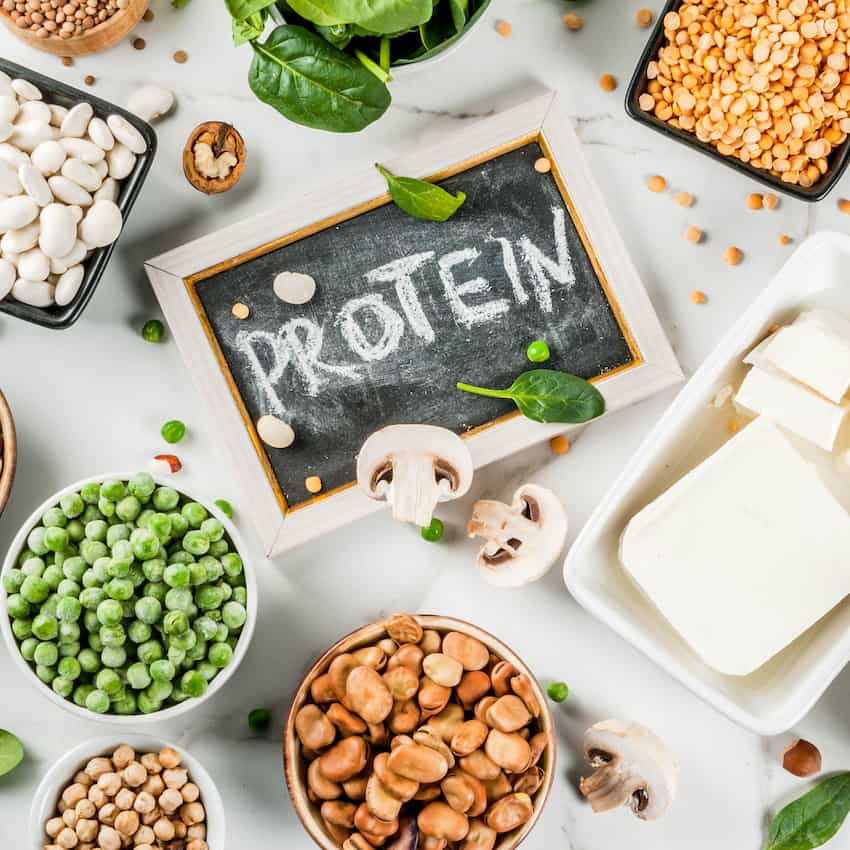
Ok, now that we have an idea of our numbers….how does that translate to our meals and what we eat!
Before I showcase all the amazing plant-based sources of protein, I want to show you an example of a 1-day vegan meal plan and just how easy it is to hit your protein intake.
Breakfast: Blueberry Nut Butter Smoothie
= 35 g of protein
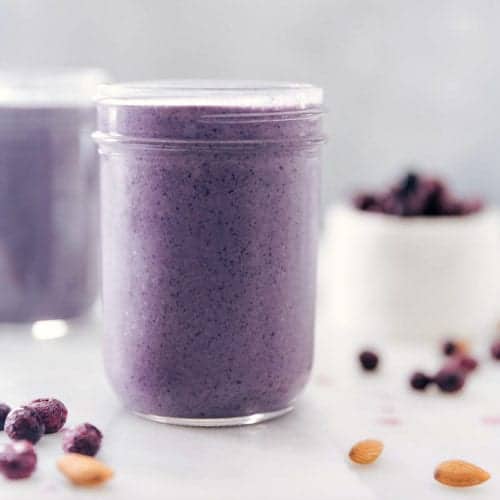
- 1 tbsp, Almond Butter
- 1 cup, Spinach
- 2 tbsp, Chia seeds
- 1.00 cup, Unsweetened Oat milk
- 1 cup, Blueberries
- 1 scoop (30.7g), Vegan Protein Powder
Lunch: Mexican Lunch Bowl
= 35 g of protein
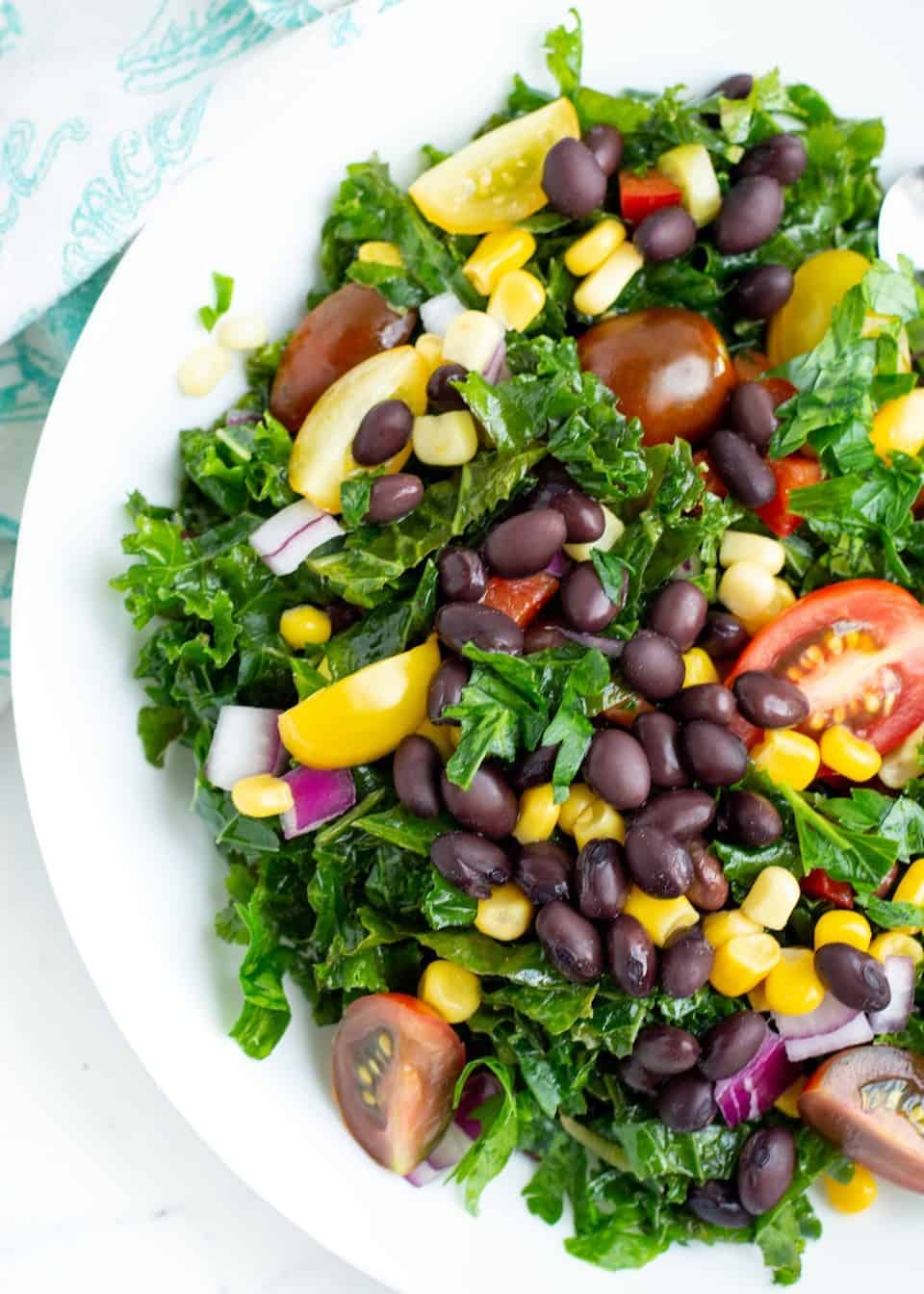
- 0.50 cup, chopped or diced, Tomatoes
- 0.50 cup, chopped, Onion
- 2 cup, chopped, Kale
- 1 tsp, Lime Juice
- 2 TBSP, Nutritional Yeast Seasoning
- 0.50 cup (184 g), Black Beans, Cooked
- 0.25 medium, Avocado
- 0.50 cup, Tempeh
Dinner: Lentil Curry
= 19g of protein
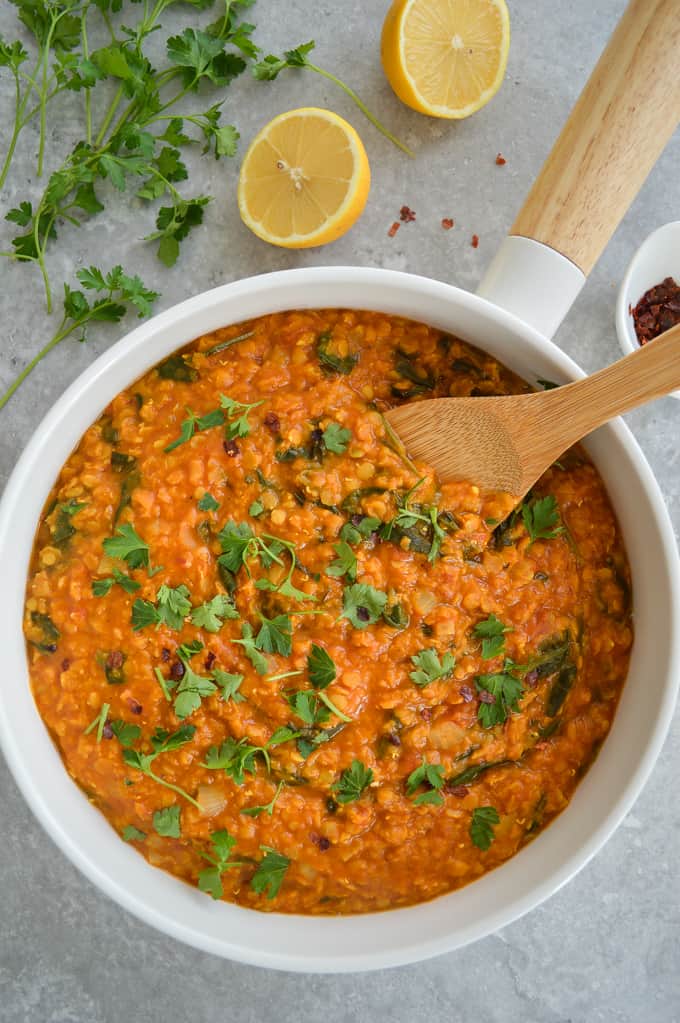
- 0.25 cup chopped, Red Bell Pepper, Chopped 1/4 Cup
- 0.50 cup, Lentils
- 0.25 cups, Tofu
- 0.25 cup, Onions
- 1 tbsp, Garlic
- 1.25 tbsp, Spices, curry powder
- 2 cup (8 fl oz), Water
- 1 oz, Cilantro (Net Carbs)
- 1 tbsp, Ginger
= 1,352 calories, 89g of protein
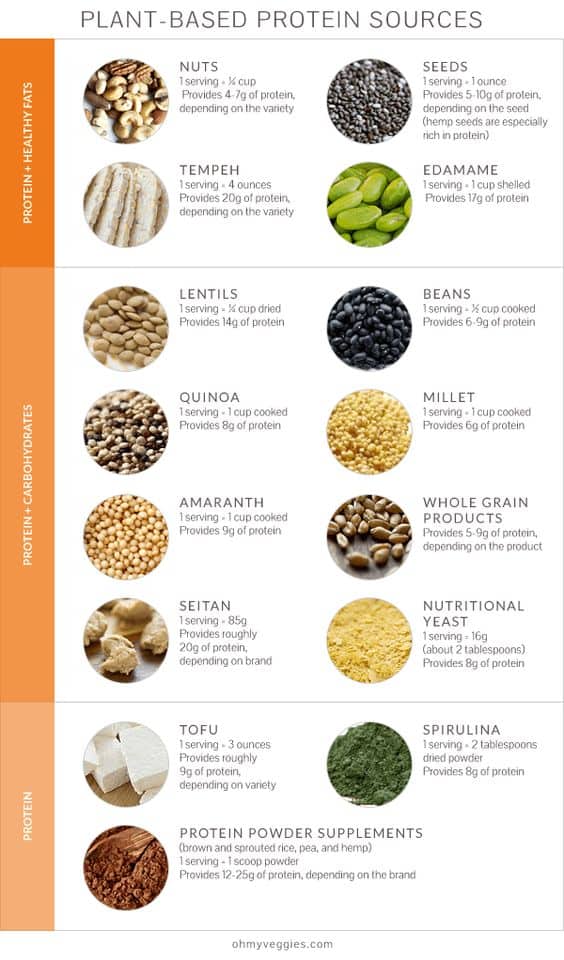
Favorite Plant-Based Protein Sources:
Legumes (beans, peas, lentils, chickpeas)
Whether using canned or dried, always be sure to soak overnight in a splash of lemon water or apple cider vinegar. This helps break down the phytic acid which covers legumes causing bloating and flatulence.
Tofu and Tempeh
Tofu has been given a bad reputation for many years due to its phytoestrogen content. Recent studies are now showing that one would have to consume excessively large amounts for the phytoestrogens to affect their health. This is good news for vegans, as tofu contains high amounts of protein, all eight essential amino acids, is a great source of iron, calcium, magnesium, zinc, B1, and more! Still, we stay on the safe side using tofu in moderate amounts. Because Tofu is mostly tasteless, it absorbs any flavor you choose to accompany within. Soft tofu is great for dips, sauces, and dressings while firm and extra firm tofus are best for baking, grilling, and stir frys. Tofu should always be bought organic.
Not so fun fact: There are more phytoestrogens in the hops from beer then there is in tofu.
Tempeh is another high protein favorite. Made from fermented soybeans, this easy to use food is great on top of salads, in stir frys, sandwiches, homemade sushi, wraps and more. You will find tempeh in the vegan section of grocery stores and it often comes in many different flavors. I prefer to buy plain and flavor it however I choose. You can enjoy it right out of the package, bake it, or lightly fry with a splash of water.
Chia Seeds
Known as protein powerhouses for their size, chia seeds are also high in healthy fats. These little black seeds are great additions to smoothies, or in a chia seed pudding made by allowing the chia seeds to sit in liquid, creating a gelatin-like outer layer.
Hemp Seeds
Similar to chia seeds, hemp seeds are high in fat, protein, and a variety of vitamins and minerals. They make great additions to salads, smoothie bowls, on yogurt or in stir fry.
Quinoa & Brown Rice
Quinoa is a complete protein meaning it contains all 8 essential amino acids. While brown rice may not have all the essential amino, it does offer a great source of fiber to your meals. Both are easy to prepare and add a nutritious, hearty component to just about any dish. Great in stir-frys, salads, even breakfast bowls, because of their bland natural flavor profile, they pick up whatever seasoning you decide to add whether it’s sweet or savory.
Nuts
Although nuts are a great source of protein and healthy fats, it’s easy to overdo it.
New vegans tend to go nuts (pardon the pun) on nut butter. Another no-no.
Of course, we need healthy fats but tablespoon after tablespoon can add up. Especially if your adding chia seeds or nut butter to breakfast, avocados to your lunch, and coconut oil in your cooking with dinner. You can easily go overboard.
How much fat should I eat?
It will vary from person to person but on average if you’re active and eating a 2000 calorie per day diet, the recommended amount is 44 grams to 77 grams of fat per day. This equals out to be about 400 to 700 calories. If 2 tbsp of peanut butter is 188 calories and there are 260 calories in an avocado plus 1 tbsp of coconut oil 117, you can see how it can quickly add up. Use the moderation rule when incorporating nuts and nut butters.
Spirulina
This is a personal fav! Spirulina is an algae and one to take note of at that! Incredibly high in protein, minerals, vitamins, and nutrients, and it one of the best plant-based sources for iron and calcium!
A few of its long list of benefits include supporting weight loss, increasing energy, supporting eye health, and brain function, balancing blood sugar, improves nerve function and can help the body remove heavy metals.
It has a very strong taste so before you try it with water and swear it off for the rest of your life, try ½ tsp in freshly squeezed orange juice with a small cube of ice. Work your way up to 1 tbsp a day in water, almond milk or like me, with your protein powder post-workout!
Oats & Amaranth
Fun fact: Oats are said to have more protein than any other grain.
High in complex carbohydrates and fiber, which is why they’ve been a staple breakfast item for decades, maybe even centuries. Although oats are one of the simplest breakfast dishes around, when it comes time to buy them, you may be confused at which type are best.
There are two kinds of oats, Rolled and Steele Cut. Old Fashioned, Quick and Instant all fall under the Rolled oats category. These oats are highly processed, cook and digest much faster than Steele Cut. Although Steele Cut oats make take a bit longer to prepare, they digest more slowly which helps you feel satiated longer, supporting balanced blood sugar and weight loss.
Tip: Soak your oats in water and/or almond milk overnight for a quick, easy breakfast in the morning!
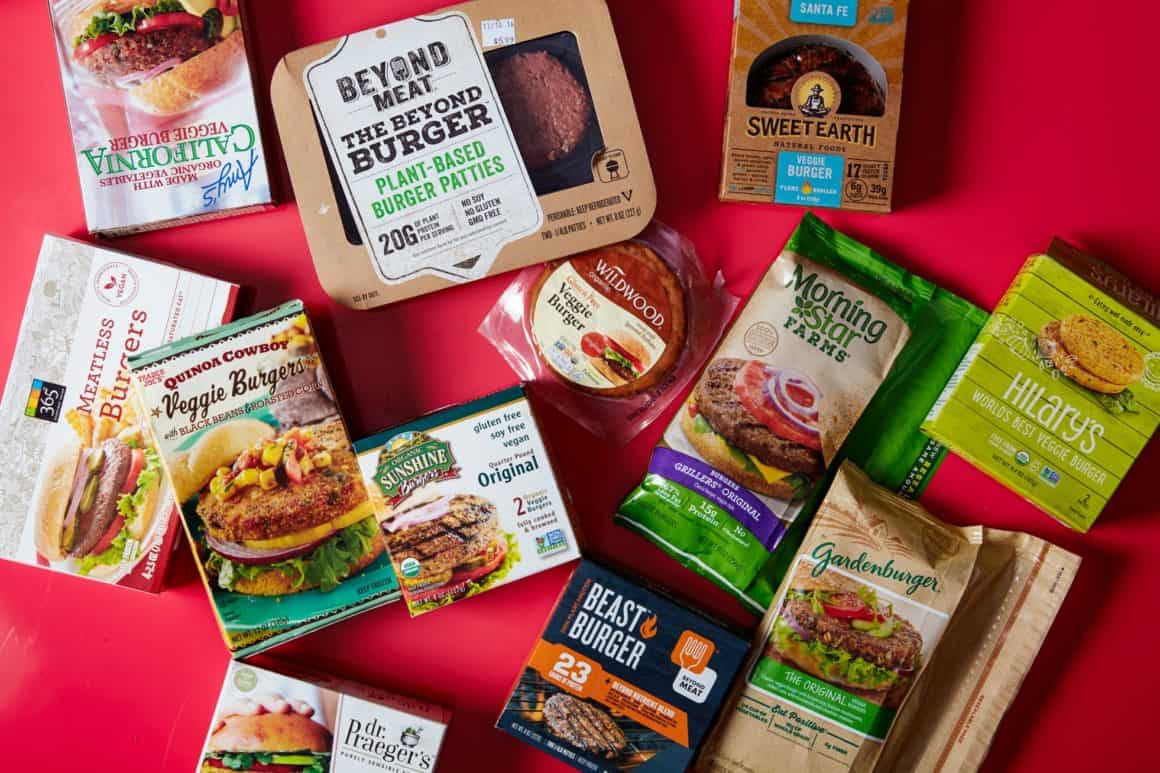
Meat Free alternatives
Veggie Round
Although this product contains some unfavorable ingredients like guar gum, cane syrup, and canola oil, the company has made an effort to ensure the ingredients are non-GMO and are used in small amounts. I wouldn’t consider it a staple in my diet but I do enjoy it once in a while especially in dishes such as pasta sauce, tacos, vegan nachos, lasagna, and chili.
Veggie burgers
More and more options are making their way onto grocery store shelves which can make the choice a lot harder. If you can make your own veggie burgers, I highly recommend it, especially this high protein Mas Por Favor Veggie Burger. If you’re short on time and need to pick up a pre-made one, refer to the Improper use of packaged products section above. Always read the label checking for animal products and high amounts of oils, condensed gluten (seitan), and sugar.
I hope this blog has helped your confidence when understanding the role of protein, sources of plant-based protein, and how much to include in your diet.
Happy healthy eating friends!

